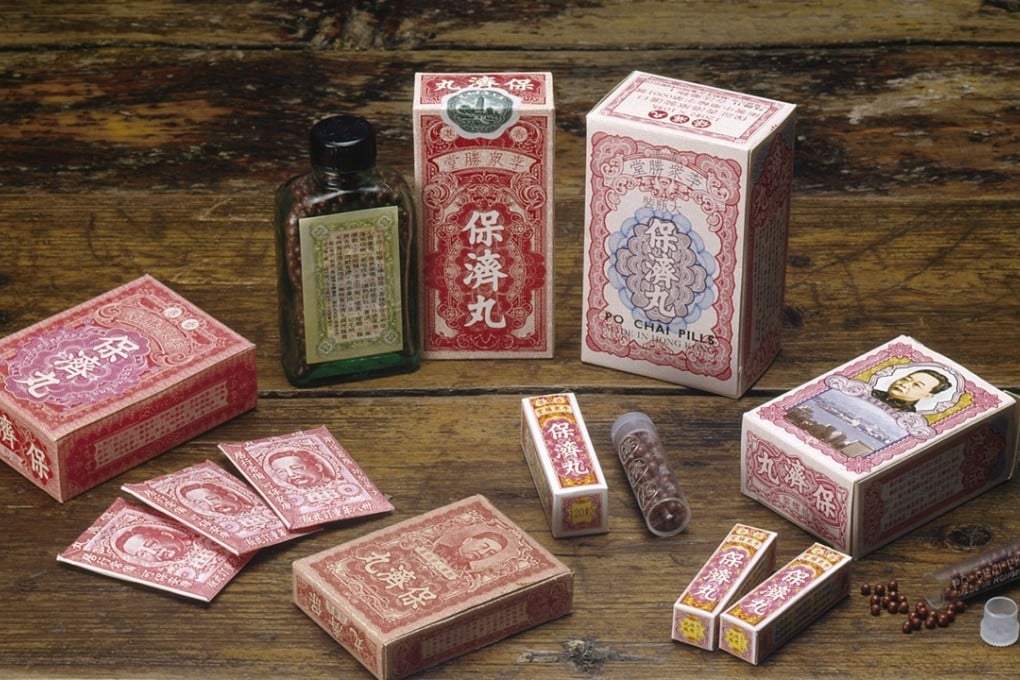Made in Hong Kong: the story of Po Chai Pills, ‘cure all’ medicine Chinese families have relied on for over 60 years
The tiny pills that reputedly remedy everything from stomach pains to menstrual cramps have long been a staple of local medicine cabinets. Now the company is looking to attract younger consumers to keep the legacy going

When Derek Sum Kwong-yip was a child, his family always had Po Chai Pills on hand. “Every time I complained about tummy pain, my mother would hand me a bottle,” he says.
Curing more than just stomach pains, the pills were reputed to relieve menstrual cramps and even cold symptoms, living up to the meaning of their name: “cure-all pills”.
Little did Sum know that, decades later, he would end up owning the company that makes the venerable Chinese medicine.

Even if you have never popped a bottle of the tiny, buckshot-shaped herbal pills, you have almost certainly seen their colourful vintage packages on chemists’ shelves. The pills were developed in 1896 by entrepreneur Li Shiu-kei in the city of Foshan in Guangdong province and were manufactured there until 1949, when the Li family fled to Hong Kong following the communist revolution.
Homegrown Hong Kong: the wholesome story of Vitasoy
The Foshan factory was subsequently nationalised, so the family opened a new facility in North Point. By then, Po Chai Pills were already a household name in Hong Kong – and their popularity only grew with a series of animated television commercials in the 1970s and ’80s.